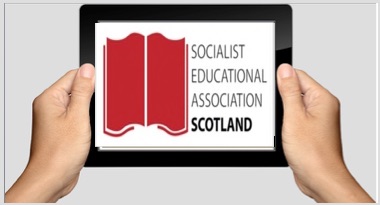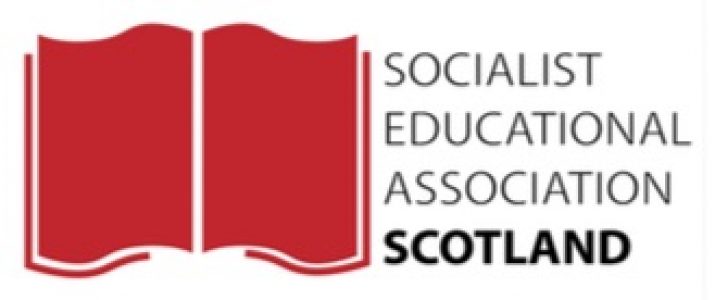
While we all can accept we are in permanent campaign mode, it’s useful just to take a look back on the Labour Party’s proposals across three education jurisdictions at the last general election. From a Scottish perspective the Socialist Educational Association Scotland considers the recent manifestos for the Labour Party in Scotland, Wales and England and reviews the common ideas and points to be drawn from them.
Ahead of the June 2017 General Election (soon to be known as the one before Jeremy Corbyn became Prime Minister) the SEAS published a discussion paper for Scottish education (see first blog article below). The SEAS viewed education policy in Scotland as benefiting from a national set of frameworks and models linked across local authority control of education. Our headline messages were
“To improve our comprehensive wraparound model of education, care and health from early childhood and ensure that all children and family services support parents and carers where appropriate in identifying children’s needs and providing them with timeous and appropriate support.
To continue to build on the universal, broad and inclusive framework for the curriculum from early childhood to adult learning.
To promote the development of local authority frameworks and partnerships providing strong local support and oversight of all educational establishments.”
So far, so good: such approaches would support and enhance the idea of education as part of key part of family services, inclusive of all and underpinned within local democratic accountability at community level. Our policies and frameworks were published ahead of the Scottish Labour manifesto “Together we’re stronger”, Welsh LP’s ‘Standing Up for Wales” and the UK party’s “For the many, not the few” with its aims for education in England.
This blog concentrates on the recent three education manifestos and suggests further cross-developments would be useful in furthering comprehensive schooling and education. All the documents restated the socialised case for public investment in education with a clarity of message about the benefits of our comprehensive schools, the idea that we aspire for schools to be part of a coherent set of public services with a strong role for public education authorities linked to democratic accountability within local authority councils.
“Together…” stated “The single most important economic policy a government can pursue is investment in education. We will all benefit from a stronger economy, a richer culture, and a more equal society.”
Standing up For Wales acclaimed, “Now is the time to take the next step in building a world-class education system in Wales, founded on parity of esteem between academic and vocational careers, which can develop the potential of all and support the Welsh economy now and in the future.”
While “For the Many…” said, “When we invest in people to develop their skills and capabilities, we all benefit from a stronger economy and society.”
It’s clear in terms of a marker that the Labour Party across the jurisdictions believes in developing the talent of students and a comprehensive system rather than selecting talent in a fragmented and privatised system. So far, so good.
While there is a great deal of commonality across all the papers the differences are worth noting. Firstly the Welsh paper supports the policies of the Welsh government and backs up the progress being made through resisting Tory cuts and building on the successes of their schools. As well as setting out policies it celebrates the successes of the Welsh Labour Party in particular prioritising school funding despite Tory cuts. While the English document charts the negative impact of the policies of encouraging free schools, academy chains and a culture of over-assessment in a narrow curriculum. The Scottish paper emphasises a failure to invest in education by the SNP and opens with the commitment of more money for education transform the system and ensure al young people can reach their full potential.
Each of the documents are consistent in key areas with headings across structures and stages shared in Early Years, Schools, Skills, Further Education, Apprenticeships and Higher Education. The Scottish paper goes into greater detail and commits to more specific policy concerns including support for the campaign to combat homophobia, biphobia and transphobia in our education system, stopping zero contract s as being seen as a positive destination and introducing a national schools coding competition to showcase talent and skills for the future. The English paper presents some big ideas in addition to investing in our education system. With a nod to the National Health Service they propose moving to cradle-to-grave learning (is that the same as lifelong learning?) free at the point of use met by creating a unified National Education Service (NES). The NES will be built on the principle that “Every Child- and Adult – Matters” (Every Learner Matters?) and will incorporate all forms of education from early years through to adult education. This interesting organisational approach is accompanied by four big themes for the schools agenda in England – Investment, Quality, Accountability and Inclusion. Such contextual themes provide a useful framework to highlight policies addressing key issues.
Each of the documents cover a set of common approaches within a socialist perspective and while Wales aims to support continued success the Scottish and English documents face the uphill task of improving the education system in face of Tory and SNP cuts. As well as setting out policies within the structures the English document benefitted from its thematic suggestions towards schools. Investment in education gives us clear differentiation from Tories and SNP particularly in Scotland where the SNP are borrowing so much from Conservative policies from the 1980s and Gove-like initiatives of a more recent vintage.
The SEAS would like investment in education to be accompanied by a reimagination of the benefits of socialised comprehensive schooling for all based around the concepts of a broad relevant personalised curriculum. To support that we need a data and statistics service that provides the information that ministers and others need and not just redefining datasets to shape positive messages. Our wider research community needs to redirect its efforts towards the challenges that our children and young people face, those our schools encounter and linked to best international practice. Quality inclusive education is not yet fully successful in Scotland. Working class children and those with additional support needs do not do as well as they should in our schools. We need smart data linking diversity to equity and the use of information and data in schools that take account of identity, it’s “who you are” that matters. We must also aim to ensure the place of local democratic control of education as part of a range of services delivered across colleges, communities, schools and centres. We support a national review of further education and moves to securing parity of esteem with higher education.
As the Scottish document put it: –
“Scotland’s greatest resource is our young people, and education is what empowers us all to realise our full potential. When education fails, it isn’t just the individual that is held back, it is all of us.”





